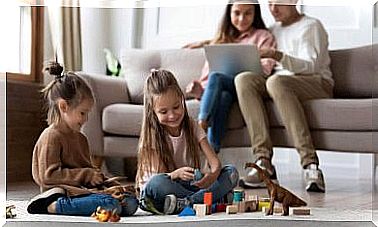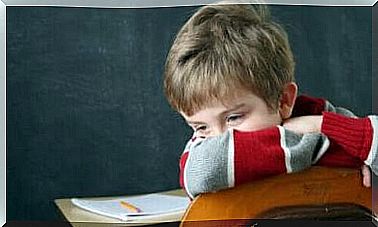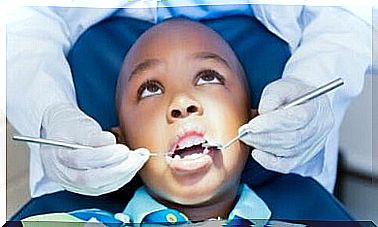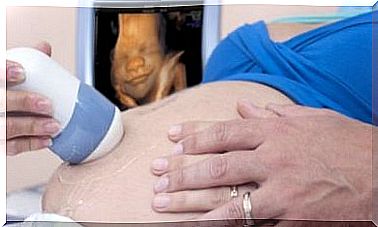Do You Have A Shy Child? Here Are The Characteristics!
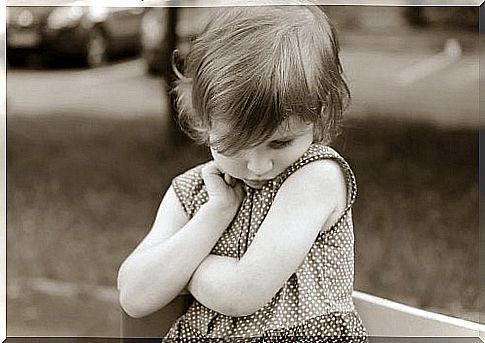
To know if you have a shy child, you need to differentiate between introverted personality and difficulty socializing.
Introverted children are called children who are inside their own thoughts and feelings. They like and consciously choose to be alone but not because of insecurity or lack of social skills.
This behavior may be normal at certain stages of childhood. A shy child, on the other hand, feels uncomfortable in social situations and especially feels insecure when its parents are not around.
There are two driving factors behind a child’s shyness. The first is that one of the child’s parents is shy and thus the child learns that behavior by imitating the parent. The other is to have parents who are very social but at the same time overprotective.
These driving factors are the main causes behind a shy child according to the latest theories in psychology.
The ideal solution is to help the child develop other parts of his life and learn to express himself in his own way. The development of these children should be promoted without pressure and the parents should also avoid being overprotective, which we know is one of the reasons for the shyness.
It is not a crime to be a shy child
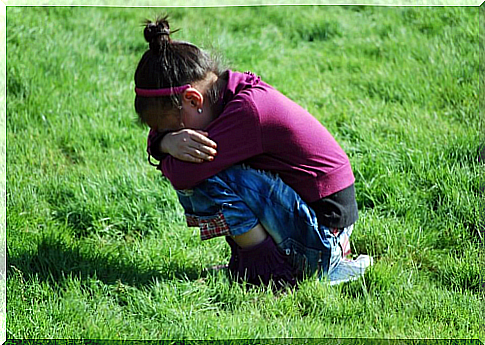

Society has sold us the ideal of extroverted people being successful. The shy ones, on the other hand, even if they are talented, should work with themselves to be able to interact more with the outside world.
Being introverted does not have to be negative. There are many examples that prove it, for example: Albert Einstein, JK Rowling and Dr. Seuss to name a few. Despite few social skills, they stand out in other aspects such as innovation, creativity and sensitivity. And their work undoubtedly changed the world.
Introverted people enjoy silence. They are analytical, careful and very focused on things they like, and therefore they like peaceful places. Being alone allows them to concentrate. It is the exact opposite of extroverted people who tend to think out loud and who love being in social environments.
As we can see, there are two different personalities and both are very different from being modest. We can think of shyness when children stop making progress in some form of activity for fear of social interaction.
When they cry a lot in situations that should not lead to tears and when they regularly isolate themselves, it is a sign of social anxiety that should be evaluated by a specialist.
There are also cases where children show social phobia in a weakened and persistent way from a very early age. This is a situation where psychotherapy can be applied and above all basic support from the school is necessary.
Some parents contribute to children’s shyness
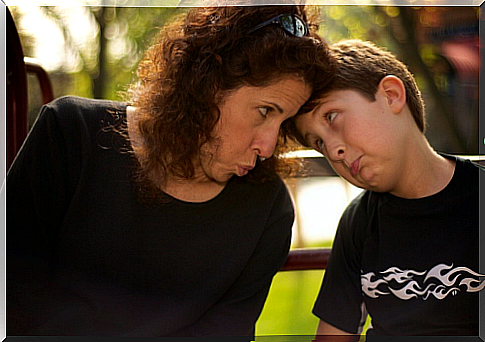
According to a report published by the Canadian newspaper Today’s Parent, which specializes in family and child health, sometimes parents inadvertently contribute to children’s shyness.
The report contains statements about children from the famous American author and professor Michael Reist. He says: “When parents or other adults make an attempt to correct a child’s shyness, they usually do not perceive the correction. We have to show the children that it is okay not to behave in the same way as others. ”
It is also important for parents to know that one of the main causes of shyness is overprotective parents. Being overprotective can cause many problems for children, including insecurity and low self-esteem, which contributes to them becoming shy.
A study published by The New York Times based on surveys conducted by more than 100,000 students from the University of Pennsylvania confirms that anxiety is a very common health problem that students struggle with. The study also found that 1 in 6 students suffer from depression, stress or anxiety.
The report also supports that one of the main causes of these problems was overprotective parents.
